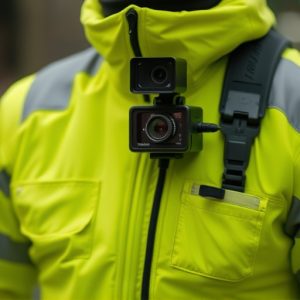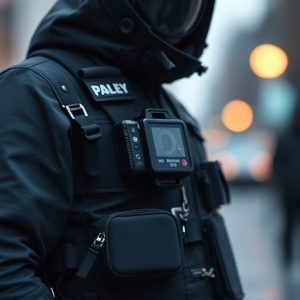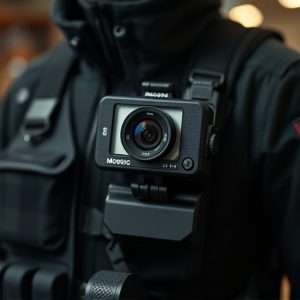Body-Worn Hidden Cameras: Advantages, Applications & Ethical Implications
Body-worn hidden cameras have transformed covert operations by providing discrete, high-quality vide…….
Body-worn hidden cameras have transformed covert operations by providing discrete, high-quality video and audio recording capabilities that blend seamlessly into their surroundings. Their compact design empowers agents in law enforcement, security, surveillance, and intelligence gathering to gather critical information discreetly, enhancing observation skills and capturing details missed by traditional equipment. However, the ethical and legal deployment of these cameras requires stringent regulations to balance public safety with individual privacy rights, as their use raises concerns about consent and data handling.
“Unveiling the power of technology for covert operations, this article delves into the world of body-worn hidden cameras. These sophisticated devices have transformed how we conduct secret missions and investigations. From law enforcement to surveillance, understanding their role is paramount. We explore the advantages, from enhanced evidence collection to their diverse applications. Yet, we must also navigate ethical considerations and legal implications to ensure responsible use. Discover how these cameras, though powerful tools, come with a unique set of challenges.”
Understanding Body-Worn Hidden Cameras: Their Role in Covert Operations
Body-worn hidden cameras have emerged as a powerful tool in covert operations, offering unprecedented versatility and discretion. These compact devices, designed to be worn like regular clothing accessories, provide an unobtrusive means of capturing high-quality video and audio evidence. Their compact size and sleek design allow them to blend seamlessly into their surroundings, making them ideal for situations where traditional surveillance methods might raise suspicion.
In covert operations, body-worn hidden cameras enable agents or individuals to gather intelligence, monitor activities, and document interactions without alerting subjects under surveillance. The real-time video feed offers a first-person perspective, providing valuable insights into the environment and behavior of targets. Additionally, these cameras can capture critical details that might be missed by remote or fixed-position surveillance equipment, making them invaluable for operations requiring close observation and detailed documentation.
Advantages and Applications of Using Body-Worn Hidden Cameras
Body-worn hidden cameras offer numerous advantages for covert operations, enhancing situational awareness and evidence collection capabilities. These compact devices allow operators to capture high-quality video and audio discreetly, providing a clear and unaltered view of sensitive situations. The versatility of body-worn hidden cameras makes them suitable for various applications, from law enforcement and security to surveillance and intelligence gathering.
Police officers, for instance, can use these cameras to ensure public safety while maintaining the element of surprise during sting operations or when dealing with potentially volatile individuals. In the field of security, body-worn hidden cameras aid in monitoring high-risk areas, detecting suspicious activities, and preventing crime. Moreover, they offer valuable evidence in legal proceedings, ensuring that every detail is captured accurately, thereby promoting justice and accountability.
Ethical Considerations and Legal Implications: Navigating the Use of Hidden Cameras
The use of body-worn hidden cameras, especially in covert operations, raises significant ethical and legal concerns. While they can provide valuable evidence for law enforcement agencies and private investigators, their application must be carefully regulated to protect civil liberties and privacy rights. The primary ethical dilemma revolves around the potential invasion of personal space and the right to privacy, as these devices capture intimate moments without consent. This is particularly sensitive when individuals are unaware that they are being recorded, leading to debates about transparency and consent in surveillance practices.
Legally, the use of body-worn hidden cameras operates within a complex framework. Many countries have strict regulations governing surveillance activities, with laws dictating when and how such devices can be employed. For instance, obtaining prior consent from individuals under surveillance or adhering to strict guidelines on data storage and usage is often mandatory. Law enforcement agencies must ensure they operate within these legal boundaries to avoid potential lawsuits and maintain public trust.


